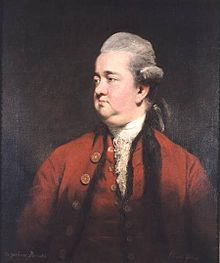Bible Knowledge Graph
Edward Gibbon
- Entity ID:
- edward-gibbon
- Long Name:
- Gibbon, Edward (1737-1794)
- Short Name:
- Edward Gibbon
- Disambiguation String:
- English historian of the Roman Empire
- Entity Type:
- person
- Entity Subtype:
- author
-

- Wikipedia
- Summary:
-
Gibbon was the supreme historian of the Enlightenment, and is best-known as the author of the monumental The Decline and Fall of the Roman Empire, often considered the greatest historical work written in English.
Edward Gibbon was born in Putney in South London into a prosperous family. His father was a wealthy Tory member of Parliament who went into seclusion and left his son to the care of an aunt. Gibbon was a sickly child and his education at Westminster and at Magdalen College, Oxford, was irregular. According to Gibbon's own explanation he was too bashful to spend his time in taverns, but his studies ended anyway after one year: he was expelled for turning to Roman Catholicism - a decision which was undoubtedly directed against one of his intellectually lazy Anglican college tutors. In 1753 Gibbon was sent by his father to Lausanne, Switzerland. He boarded with a Calvinist pastor and scholar, who was very demanding in his teaching, and rejoined the Anglican fold. In Lausanne he fell in love with Suzanne Curchod, who eventually married Jacques Necker, a banker. Their relationship was ended by his father, and Gibbon remained unmarried for the rest of his life.
From 1759 to 1762 Gibbon hold a commission in the Hampshire militia, reaching the rank of colonel. Before 1763 Gibbon had considered various subjects as worthy of the type of philosophical analysis that he wished to apply to history: the life of Sir Walter Raleigh, the history of Switzerland, and others. However, he felt that he had nothing original to say about Elizabethan politics and he could not read German.
In 1764 he visited Rome and was inspired to write the history of the city from the death of Marcus Aurelius to the year 1453. After his father died Gibbon found himself in some difficulties, but he was able to settle in London to proceed with his great work. The first volume appeared in 1776, with a certain amount of public reaction to Gibbon's ironical treatment of the rise of Christianity and the actions of early church fathers. Like Voltaire, Gibbon was himself a deist who had little appreciation of the metaphysical side of religion. He examined the secular side of religion as a social phenomenon - religion did not have for Gibbon special sanctity. But Christianity had a special role in the fall of the Roman empire: "... the church and even the state were distracted by religious factions, whose conflicts were sometimes bloody and always implacable; the attention of the emperors was diverted from camps to synods; the Roman world was oppressed by a new species of tyranny, and the persecuted sects became the secret enemies of their country."
Between 1774 and 1783 Gibbon sat in the House of Commons, and became a lord commissioner of trade and plantations, partly because he was considered a nuisance as a politician. In 1774 he was elected to Dr Johnson's Club. From 1783 Gibbon spent much of his time in Lausanne and in England with Lord Sheffield (John Baker Holroy) in his Sussex and London houses.
The last three volumes of Decline and Fall were published in 1788. The book was a bestseller, and offered the reading public a vivid narrative of the past instead of an antiquarian picture.
- Viaf ID:
- 24601933
- DB Pedia ID:
- Edward_Gibbon
- Biblical Status:
- extraBiblical
- Is An Individual:
- Yes
- Is Published:
- Yes
- Birth Date:
- May 8, 1737
- Death Date:
- January 16, 1794
- Occupation:
- English historian of the Roman Empire
- Works:
